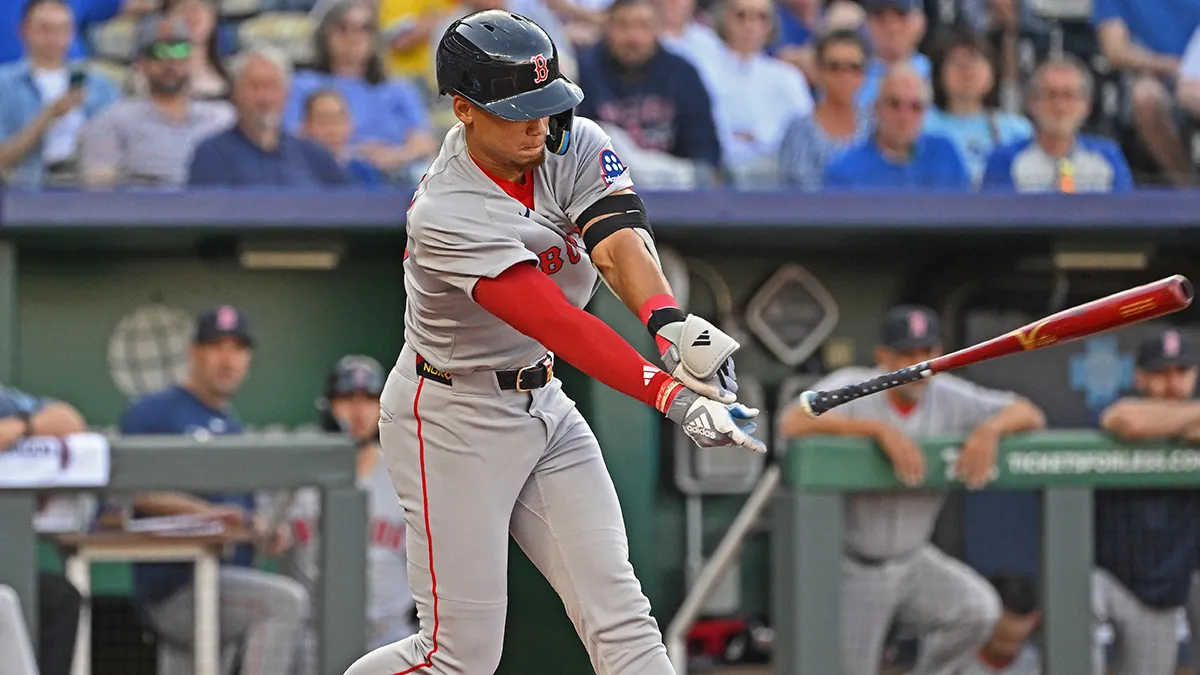If Red Sox ownership really wants to reset the luxury-tax clock, then the new GM should expect the following item to be missing from his new office: a checkbook.
For the Red Sox actually to drop below the $208 million threshold that returns their penalty structure to zero will require not so much pruning shears as a chainsaw, with two high-profile victims -- Mookie Betts and J.D. Martinez -- on the chopping block.
The Red Sox spent more than $240 million last year and will be in that range again this year. If they spend beyond the tax threshold again in 2020, they'll trigger the most onerous penalties, with a tax of 50 percent on every dollar spent over $208 million, 95 percent on every dollar over $248 million, and a sliding scale in between. They could end up making a tax payment of more than $20 million.
The problem with dropping below that $208 million figure is the Red Sox are already well over it for 2020 if they do nothing except keep their signed and arbitration-eligible players. By just a simple back-of-the-envelope calculation, they have more than $220 million already committed to next year's team, which is why Dave Dombrowski's successor will inherit such a challenge.
The clearest way to slip below that threshold requires a pair of unthinkable moves -- letting Martinez opt out of his contract and walk, and trading Betts. And even that might not be enough, given the rest of the team's needs.
Those two should count for roughly $50 million against next year's cap, assuming Betts earns about $28 million in arbitration and Martinez carries his $22 million luxury-tax hit (on an actual salary closer to $24 million). Renouncing Martinez would still cost $6 million for cap purposes in 2020, since it's the difference between his tax hit ($44 million) and his actual earnings ($47.5 million in salary, $2.5 million buyout) over two years in Boston.
Boston Red Sox
Find the latest Boston Red Sox news, highlights, analysis and more with NBC Sports Boston.
If that's where ownership wants to maroon its new GM, John Henry and Co. might as well hire Harry Sinden, who took arrows for the Jacobs family while holding a death grip on the Bruins' purse strings in the 1980s and early '90s.
How did the Red Sox find themselves in such dire financial shape following a season that will see them miss the playoffs and finish around .500? It's not pretty.
Consider the following 2020 salaries, totaling nearly $135 million, for luxury tax purposes:
David Price ($31 million), Martinez ($22 million), Chris Sale ($25.6 million), Nathan Eovaldi ($17 million), Dustin Pedroia ($13.75 million), Xander Bogaerts ($20 million), Christian Vazquez ($4.5 million).
If we estimate $60 million in arbitration (which requires saying goodbye to backup catcher Sandy Leon and knuckleballer Steven Wright), we're already pushing $200 million with just the following players: Betts, Jackie Bradley, Eduardo Rodriguez, Andrew Benintendi, Brandon Workman, Heath Hembree, Matt Barnes.
Add young, pre-arb players like Rafael Devers (whom we'll get to in a second) and Michael Chavis, plus $15 million for medical expenses and benefits, and we're already in the $220 million range without addressing free agent losses such as Rick Porcello, Mitch Moreland, and Brock Holt, or depth for a rotation that doesn't know if it can trust Sale, Price, and/or Eovaldi to stay healthy, even though they'll be earning $79 million in real money.
Removing Betts and Martinez from the equation drops that commitment to the $175 million range, but also creates holes at DH and right field that can't be filled for free.
It also calls into question whether it makes much business sense, in 2020, to extend Devers, since doing so will jump his tax number from about $800,000 to $12 million to $15 million if he were to receive a contract in line with the eight-year, $100 million extension Ronald Acuna Jr. signed with the Braves.
This is all assuming that ownership has designs on dropping below $208 million. If it does, there's no way the Red Sox will pay Betts $35 million a year, and you can kiss him goodbye. There's also no realistic path to squeezing in Martinez at $25 million annually. That's what happens when an unreliable Big Three is soaking up a third of the payroll. The prospects of moving Sale, Price, or Eovaldi without eating most of the money range from dim to hopeless.
With payroll and winning no longer strongly correlated -- if the season ended today, two of the game's six lowest payrolls would face off in the AL wild-card game (Tampa vs. Oakland) -- the Red Sox can't simply buy their way to a title.
So, good luck to the new guy if he's ordered to shed payroll, because that's going to cost him some serious talent and leave the Red Sox in a position that might benefit their bottom line and long-range plans, but could make 2020 every bit as painful as 2019.
Click here to download the new MyTeams App by NBC Sports! Receive comprehensive coverage of your teams and stream the Celtics easily on your device.




